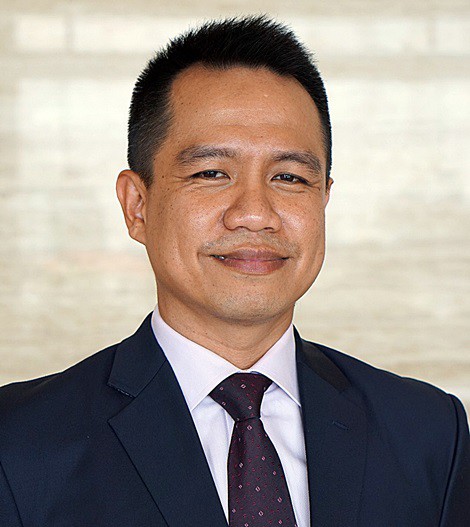
(File) Malaysia believes a blanket ban on digital currencies would curb innovation. Souce: Shutterstock
‘Govt intervention is needed’ – MDeC VP on Malaysia’s ecosystems growth
FOR the last 21 years, Malaysia has had a government branch working towards growing the country’s digital economy – the Malaysia Digital Economy Corporation (MDeC), founded in 1996 in response to the dotcom boom that was shaking the world over.
In just over two decades, MDeC has been slowly, but surely shaping Malaysia’s digital economy and providing support to the market players through seed-size grants, links with government authorities – especially regulators – and foreign partners.
VP, Growth Ecosystem Development, Norhizam Kadir at Echelon MY 2017 discussing about the thriving Startup Ecosystem from the Bottom Up in MY pic.twitter.com/00PQYcd26S
— My MDEC (@mymdec) April 12, 2017
But now, the organization is taking center stage as the main governmental driver of the country’s digital economic growth in line with Prime Minister Najib Razak’s plan to shift the economy to the digital age. In just the last year, MDeC has helped launch the Asean Data Analytics Exchange (Adax), the world’s first physical data exchange – a center that aims to bring together an Asean-wide repository of data and train data scientists for the future – and the Malaysia Digital Hubs program.
The latter is being carried out in partnership with players in the private sector and is designed to provide an incubator-meets-co-working space program that will help young startups find the resources they need to grow sustainably.
Tech Wire Asia recently spoke to Norhizam Kadir, the vice-president of MDeC’s Infotech Industry Development, about MDeC’s role in providing the governmental support necessary for the growth of tech ecosystems.
What is MDeC’s ethos? What drives the organization and what you do see your role as?
Norhizam: We believe for any country to ride on the Internet economy wave, there are several strategic catalysts. We are policymakers that ensure ecosystems are more conducive to grow startups in Malaysia and attract foreign ecosystems. But we also realize MDeC needs to work with the private sector rather than struggle to manage these physical ecosystems on our own, which is where the Malaysia Digital Hubs initiative comes in.
The recent Startup Genome report noted out of the many ecosystems that were driving digital growth globally, the ones that came from countries where there is government intervention tend to produce higher exits. What do you think about that?
NK: Government intervention is needed, especially in emerging markets like Malaysia. Government plays a role as a capital link, in catalyzing whole ecosystems. The existence of [seed funds like] Cradle and MAVCAP is to push that needle up. Those are also roles that both the government and private sector must play, or we would not be able to sustain that. The government can’t be providing grants as well as equities. I am so happy to hear Cradle is shifting towards equity as well, because it’s needed.
You know, if you were to look at the journey of a startup, starting from early seed level and moving on to Series A and above, the interventions governments can provide is always at the early seed level. The role of the government it to catapult [those ecosystems]. I think it has benefited some companies. A good report to look at is one produced by Tech in Asia, that says out of 13 tech IPOs in Asia, six came from Malaysia, including JobStreet, MyEG, REVAsia and so on. Singapore has four, the Philippines has one and Vietnam two.
SEE ALSO: MDeC launches Malaysia Digital Hub to shift economy towards tech

Norhizam has previously worked with Microsoft and Intel. Source: CIO Asi
As a government arm, do you struggle with balancing between investing in companies versus coddling them? There’s quite a fine line you have to walk, particularly with fragile startups. They’re agile sometimes, but that makes them vulnerable because of a lack of infrastructure.
You know, we can provide that coddling moment, some tender loving care at the beginning, but as they grow bigger they can’t expect us to be coddling them anymore.
Do you think they have enough infrastructure to sustain themselves?
Yes, especially at seed level. What we are trying to do now with the Digital Hubs is to investigate how we can enrich the ecosystems at growth level. And that’s important to us to have companies we are proud to say are dominating and bringing Malaysian names into the regional and global waves. In order to do that, we have to bring the ecosystems into greater shape.
What do you think about the tech talent pool in Malaysia today?
There’s still a need for us to go and make an effort [to deal with that]. MDeC plays a very important role in looking at how we are tackling and addressing problems at the root level. There’s a program called My Digital Maker right now that is introducing computational thinking as well as coding. It’s a great effort we’re making, but the needs of these startups and digital companies are immediate.
Demand is outpacing those programs, isn’t it?
It is! So while we wait for those guys to develop computational thinking – we probably have to wait for the next six, seven years – we’re now working with public universities. Data analytics is a great example of [those efforts] actually. We’re working with 13 private and public universities in Malaysia to ensure there are undergraduate and graduate courses in data analytics.
But more important than that right now is the upskilling and reskilling of our talent. How we will upskill and reskill our talent is a core problem, because the need in the tech space evolves so quickly. Data analytics is the next big, sexy thing – but you never know what’s going to happen two years down the road.
At the same time, to address immediate needs, for the past 15 years or so, we have what’s called the Foreign Knowledge Workers visa. This is an employment pass MDeC has been authorized to [distribute] to bring in high-skilled talent. The visa is really meant for expats, so in response we’re also launching the Malaysia Entrepreneurs pass, for entrepreneurs that may not have a company as of yet but wants to come to Malaysia and use it as a base to grow into Southeast Asia.
Bringing out the best in entrepreneurs https://t.co/RTyvKUg5YY pic.twitter.com/FaKgFbiwp8
— FinTech Malaysia (@FinTechMY) April 27, 2017
For a lot of these people with skills already, how can Malaysia lure them away from Singapore where they will get paid more and there’s already an established ecosystem?
We’ve done some comparative studies on this. In order to bootstrap in Singapore, you have to come from a wealthy family. I’m not saying that Malaysia is perfect, but neither is Singapore. Cost is a huge value proposition for Malaysia; KL is the most cost-effective metropolitan city in the whole of Southeast Asia.
If you were to look at our ecosystem, it’s pretty robust – there’s a strong supply of startups, talent, our English proficiency is equally high, and I think the business-friendliness of our government is very high. We rank 23rd in the world, I think. If I was an investor or entrepreneur, all these things combined would be a great opportunity for me. The cost of hot desking or a co-working space in Malaysia is probably three times less than in Singapore.
SEE ALSO: MDeC launches Malaysia Digital Hub to shift economy towards tech
Do we have enough global connectivity? We can see Malaysian startups flourishing in the local and regional market, but do we see enough companies scaling to a global level?
Yes, that’s what I would call a micro MNC – ServisHero, Khazanah, PurelyB are some of the startups off the top of my head. These guys have been around for the last two years, and look at the way they grow – it’s exponential. They start with maybe three people, working out of some Starbucks or kopitiam somewhere, and then working among their friends before even getting incorporated. Two years later, they have about 100 people [working for them, and are based] in three or four different markets – that’s the definition of micro MNCs.
"Digital hubs are places startups gravitate to to grow" – Norhizam Kadir, VP @mymdec pic.twitter.com/L1svD3aZiU
— sam scarypadi ?✊? (@sam_sicilipadi) April 19, 2017
We do not believe Malaysia has a sizeable market opportunity. When we speak to our startups, we told them in order to grow, you can’t be only looking at Malaysia as a market. We are not interested in working with startups that are only focused on the Malaysian market. The globalization part is very, very crucial, especially for Malaysian startups. We tell them they need to start looking at the whole of Asean as a start, before branching out to the rest of the world.
There are huge opportunities here: 650 million people in the region, US$2.4 trillion if you combine all those GDPs. Sixty percent of Southeast Asia’s population is aged 35 years and below. Markets like Indonesia have seen their middle-income earners quadruple over the last few years. We believe Malaysia provides the best platform to catapult yourself into the region, because here the government and the private sector are partnering to provide those opportunities.
Are we seeing enough people interested in STEM subjects, particularly those that feed into tech?
Yes, we have a program called e-Aspirasi, where we work with the Education Ministry. We’re partnering up to ensure students – especially top-level students – get access to those subjects. E-Aspirasi is really about driving that interest with children and we are seeing quite a lot of interest. We’ve started to introduce these skills at primary school level – coding starts at Form Four, computational thinking at Standard One. Eventually, it’s going to trickle down to all the other levels.
Are there enough resources flowing into schools?
That’s the bit we’re working on, actually. We need to ensure there are enough trainers. Hardware-wise, almost every school has a computer lab, but it’s also a matter of ensuring there are enough trainers. Training has begun to ensure there are enough teachers who can teach coding in schools.
This is part of a series of conversations Tech Wire Asia had with founders, visionaries and entrepreneurs at the Echelon Malaysia 2017 technology conference.
READ MORE
- Ethical AI: The renewed importance of safeguarding data and customer privacy in Generative AI applications
- How Japan balances AI-driven opportunities with cybersecurity needs
- Deploying SASE: Benchmarking your approach
- Insurance everywhere all at once: the digital transformation of the APAC insurance industry
- Google parent Alphabet eyes HubSpot: A potential acquisition shaping the future of CRM
